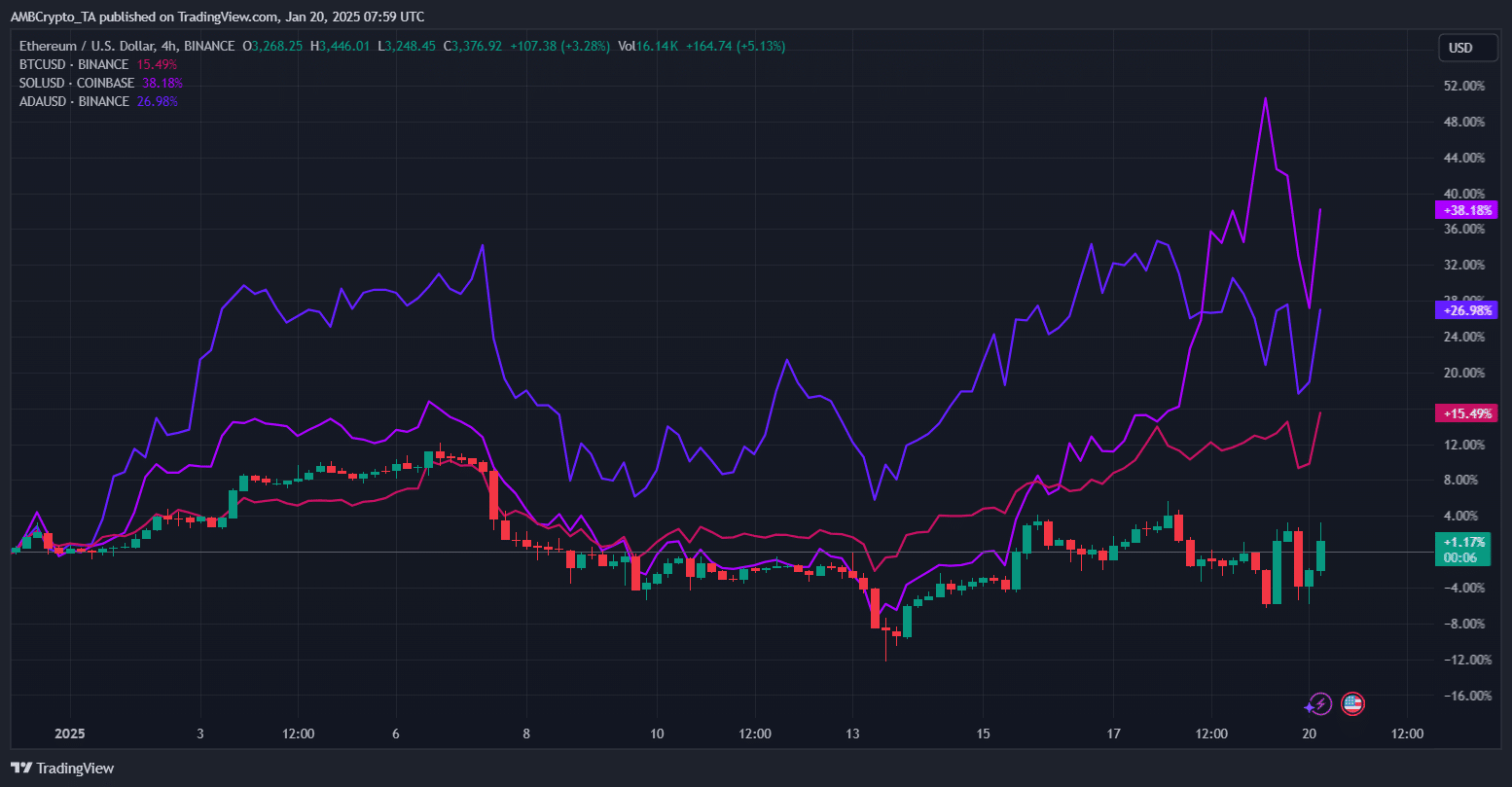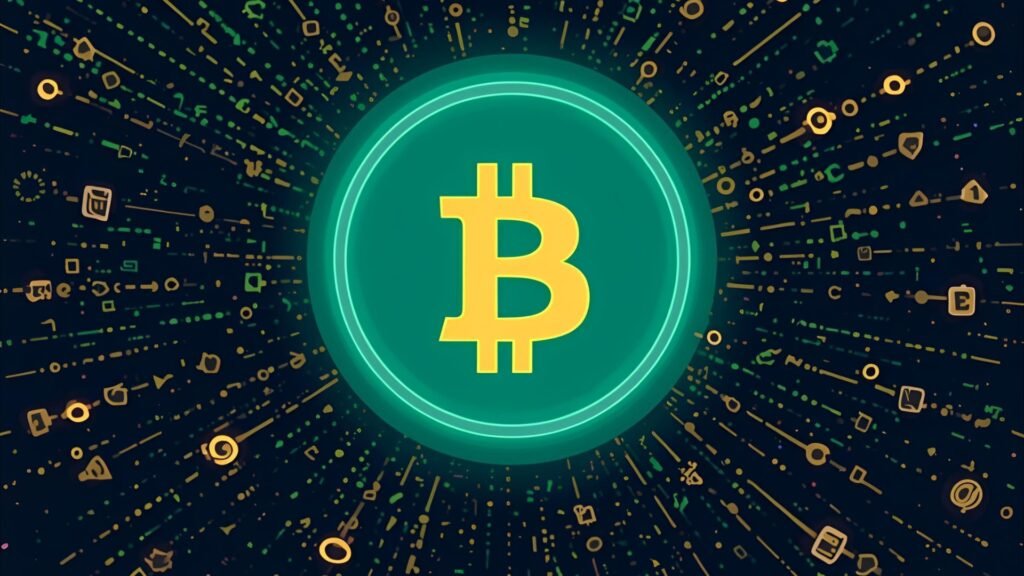Nature’s Miracle has stepped into the crypto arena with an up to $20 million digital-asset initiative that many observers see as a launchpad for climate-tech innovation. The vertical-farming and CEA (controlled-environment agriculture) firm disclosed a corporate XRP treasury program—funded via SEC-cleared equity financing—that aligns with a broader strategy to use blockchain rails in its operations. While the company’s announcement centers on its treasury and XRP strategy, the implications for the blockchain carbon market—from tokenized credits to real-time measurement, reporting, and verification (MRV)—are hard to ignore.
Important context: Nature’s Miracle’s $20M figure refers to an XRP-focused corporate treasury program. The firm has also engaged a consultant to design a digital-asset treasury framework. That, coupled with Ripple’s longstanding initiatives in carbon markets, provides credible connective tissue to future tokenized carbon use cases—though the company has not announced a specific carbon-credit acquisition or sale tied to this program.
What exactly did Nature’s Miracle announce
In late July 2025, Nature’s Miracle Holding Inc. (OTCQB: NMHI) announced an up to $20 million Corporate XRP Treasury program. The purchases are to be funded by proceeds from an equity financing arrangement that recently received Form S-1 effectiveness from the U.S. SEC. This makes Nature’s Miracle one of the first public companies to lean on XRP as a strategic treasury asset, with the stated intention of long-term reserves and participation in staking where available.
Two months earlier, the company signed an agreement with Hybridifi to develop a Digital Asset Treasury Program, aiming to bring blockchain-powered cash management and future tokenized financial products into the organization. These steps, while finance-oriented, sketch the infrastructure that could support carbon-market integrations—such as tokenized offsets, automated MRV feeds, and on-chain retirement—when (and if) the company chooses to pursue them.
blockchain carbon market matters for ag-tech
The voluntary carbon market (VCM) is undergoing a digital overhaul. Tokenization and blockchain-based registries are being used to improve transparency, prevent double issuance, and accelerate settlement. Multiple analyses in 2025 note accelerating adoption of blockchain by carbon projects—particularly in nature-based solutions like forestry and regenerative agriculture. For a CEA/vertical-farming firm, plugging into that digital market could support new revenue streams, sustainability reporting, and data-driven brand value.
Ripple, the company associated with XRP, has also invested heavily in carbon-market modernization—committing $100 million to scale high-quality credits, digital MRV, and on-chain infrastructure. For any enterprise building an XRP-centric stack, those ecosystem investments are relevant: they enlarge the toolkit for tokenized carbon credits and more robust climate claims.
How an XRP treasury can enable climate-finance rails

Nature’s Miracle’s treasury program doesn’t itself mint or purchase carbon credits. However, it lays technical and governance groundwork for future on-chain climate operations:
Faster settlement, lower friction for carbon transactions
Utilizing blockchain rails and a corporate crypto-treasury enables near-instant settlement, transparent tracking, and programmable logic (smart contracts) for tokenized carbon assets—key features in a market long criticized for its opacity and slow verification. XRP’s network, and Ripple’s tooling, are designed for high-throughput payments and could be extended to handle carbon-linked flows or escrow logic around delivery-versus-retirement.
MRV and anti-double-counting
Blockchain tokenization gives each credit a unique, immutable identity that is traceable from issuance to retirement—addressing double-counting risks. Ag-tech companies with rich sensor data can integrate MRV directly into token issuances. That combination—digital MRV + tokenization—produces auditable trails suitable for enterprise buyers.
Brand differentiation and sustainability reporting
For a consumer-facing agriculture brand, transparent climate accounting can differentiate products and unlock retail partnerships. On-chain retirement receipts and verifiable project metadata simplify ESG attestations and marketing disclosures—reducing reputational risk associated with low-quality offsets.
From treasury to tokens—what Nature’s Miracle and Hybridifi signaled
The Hybridifi engagement is explicit about building a treasury architecture with tokenized instruments (credit, interest-rate products, and potentially real-estate). While not a carbon-credit announcement, it signals readiness to operate with tokenized assets—precisely the capability carbon-market participation requires.
At the same time, Nature’s Miracle’s August update framed a “comprehensive XRP-centric strategy” extending beyond buy-and-hold—to payments, loyalty, deposits, promotions, and tokenized sales orders. Those building blocks are compatible with future carbon-related workflows such as loyalty rewards for sustainable purchases, or embedded carbon offsetting at checkout.
Also Read: Top Blockchain Development Certification Programs 2025 Complete Guide
The strategic logic behind a $20M on-chain push

Treasury diversification + operational optionality
Holding a liquid, programmatically transactable asset can provide operational optionality: cross-border supplier payments, smart-contract escrow, or even micro-incentives for growers in Nature’s Miracle’s ecosystem. This optionality is relevant if the company later runs marketplace functions (e.g., grower data for MRV, token issuance fees)
Aligning with the Ripple ecosystem’s climate agenda
Ripple has openly funded the digital VCM—supporting companies that build high-quality, long-duration credits and on-chain infrastructure. An XRP-centric stack positions Nature’s Miracle to tap that ecosystem’s tooling, partners, and liquidity if it pursues carbon programs.
Investor signaling and category leadership
By publicizing a large crypto-treasury, Nature’s Miracle signals comfort with regulated financing to support on-chain strategies (via an SEC-effective S-1). That framing may attract climate-tech, Web3, and sustainability-minded partners.
A practical blueprint Nature’s Miracle could follow
While Nature’s Miracle hasn’t announced a specific carbon-credit program tied to the $20M move, here’s a pragmatic blueprint consistent with its public statements and the state of the market:
-
Data foundation for MRV
-
Instrument CEA facilities with IoT sensors for energy, inputs, and biomass data; integrate with third-party MRV providers that support on-chain attestations.
-
Use signed data streams (e.g., oracles) to feed carbon-asset issuance logic.
-
-
Tokenization readiness
-
Leverage the Hybridifi-designed treasury stack to custody tokenized assets and interact with compliant marketplaces/registries.
-
Pilot tokenized insets (reductions within the supply chain) before sourcing external offsets.
-
-
Quality-first sourcing
-
Prioritize long-duration, nature-based, and engineered removal credits with robust baselines and third-party audits; keep retirement records on-chain for transparency.
-
-
Programmable loyalty & commerce
-
Tie tokenized carbon credits to product SKUs (e.g., “climate-neutral grow-lights”) and automate partial retirements per sale; issue customer receipts linking to on-chain retirement hashes.
-
-
Governance & disclosure
-
Publish a carbon-claims policy, MRV methodology, and retirement registry links; include forward-looking risk factors regarding crypto volatility and VCM price swings. (General best practice derived from current market norms.)
-
Frequently asked questions about the blockchain carbon market
Do tokenized carbon credits replace traditional registries?
No. Reputable projects still rely on established standards and registries; tokenization layers transparency, transferability, and programmable settlement on top. H3: Can XRP be used directly for carbon purchases?
Enterprises can use any acceptable currency/asset, but an XRP-centric stack can streamline payments, escrow, and on-chain retirement proofs, especially if integrated with Ripple-aligned climate platforms.
Isn’t crypto too volatile for a climate program
Treasury assets and carbon credits are distinct. Volatility is a treasury consideration; carbon-credit pricing has its own dynamics. Governance, hedging, and clear accounting policies separate the two disciplines.
These reflect first-page informational and transactional intents around tokenized carbon credits, Ripple’s climate efforts, and Nature’s Miracle’s XRP strategy. Sources discuss the tokenization trend and Nature’s Miracle’s XRP program.
Conclusion
Nature’s Miracle’s $20M on-chain treasury isn’t yet a direct carbon market transaction, but it’s an unmistakable signal: the company is building the financial and technical rails that could power tokenized environmental assets, real-time MRV, and transparent sustainability claims. If you’re a buyer, partner, or investor tracking the blockchain carbon market, this is the time to engage—ask about MRV pilots, tokenized inset programs, and on-chain retirement plans.


